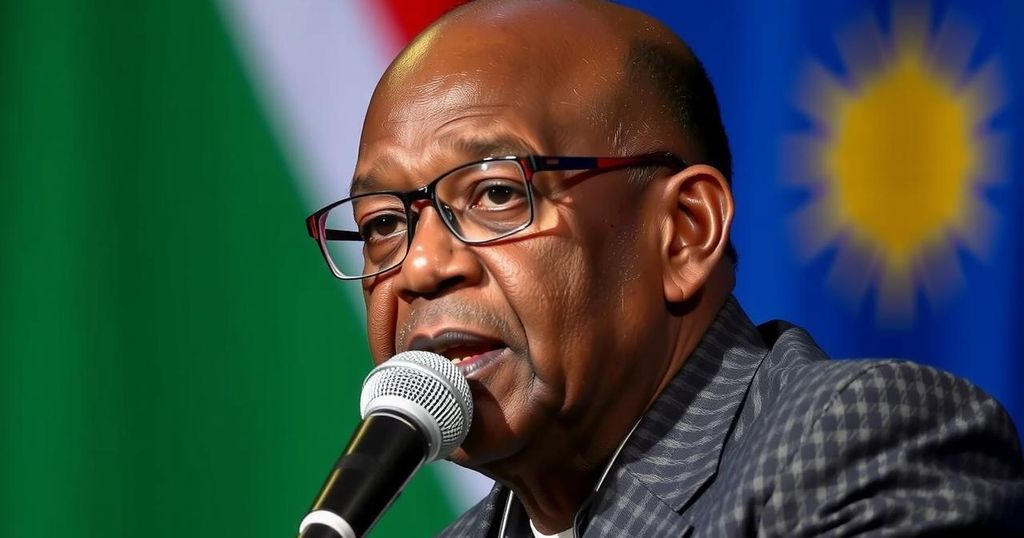Botswana’s President Concedes Election, Ending BDP’s 58-Year Rule
Botswana’s President Mokgweetsi Masisi has conceded defeat in the recent elections, marking the end of the BDP’s 58 years in power. Early results indicate the BDP placed fourth, while the opposition UDC led the vote count.
In a historic turn of events, President Mokgweetsi Masisi of Botswana has officially acknowledged his defeat in the recent elections, thus concluding the Botswana Democratic Party’s (BDP) unprecedented 58-year reign over the nation’s political landscape. Preliminary results indicate that the BDP secured a disappointing fourth place, while its primary opposition, the Umbrella for Democratic Change (UDC), has emerged as the leading party. This electoral outcome marks a significant shift in Botswana’s governance, spotlighting the electorate’s desire for change after decades of BDP leadership.
Botswana, renowned for its stable democracy and economic growth, has been governed by the BDP since the country’s independence in 1966. The incumbent president, Mokgweetsi Masisi, succeeded Ian Khama, and under his leadership, the BDP has faced increasing scrutiny and criticism from opposition parties and civil society. Over time, calls for political reform and a more representative government have grown louder, culminating in this electoral contest, which is viewed as a potential watershed moment for the Southern African nation. The recent elections were closely watched, not only for their immediate implications for Botswana but also for their potential ripple effects in the region.
The concession of President Mokgweetsi Masisi signifies a pivotal moment in Botswana’s political history, as it marks the end of the BDP’s longstanding dominance. The rise of the UDC as a major political force illustrates a robust shift in the political preferences of the citizens, indicating a yearning for new leadership and governance perspectives.
Original Source: www.aljazeera.com




Post Comment